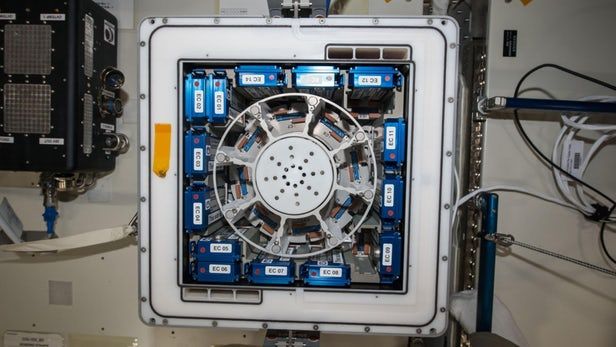Returns to the Shoreline Amphitheatre May 7–9. Join us for a hands-on experience with Google’s latest product and platform innovations.



Announces the publication of a new 315-page open-access report: “National Longevity Development Plans: Global Overview 2019 (First Edition)”.
It offers comprehensive profiles of relevant initiatives in the UK, the Netherlands, Singapore, South Korea, Israel, Switzerland, Hong Kong, Japan, the USA, Spain, the European Union and China, and utilizes sophisticated analytical metrics to compare the overall strength, focus, proactivity and relevance of their Longevity-related projects, initiatives and development plans.
Link to the Report: https://www.aginganalytics.com/longevity-development-plans
#aging #ageing #longevity #ageingpopulation #demographicageing #aginganalytics #geroscience #governmentlongevity #industrialstrategy

Two hypersonic vehicle prototypes developed by the Defense Advanced Research Projects Agency and the Air Force are due to fly by the end of the year, the agency’s director said May 1.
One vehicle is part of the hypersonic air-breathing weapon concept, or HAWC, program. The other is the tactical boost glide, or TBG, effort, said Steven Walker.
“We’re on track for both to have flights … before the calendar year ends,” he told reporters during a breakfast meeting in Washington, D.C. However, that might be questionable because once “you actually get into the building of these things and qualifying the hardware, … things tend to slip.”

San Diego-based biotechnology company Samumed has recently announced that it will be moving to phase 3 clinical trials of its drug lorecivivint (SM04690) for the treatment of knee osteoarthritis.
What is osteoarthritis?
Osteoarthritis is the most common form of arthritis in the knee and a leading cause of adult disability, particularly among older people. This degenerative, “wear-and-tear” arthritis is characterized by the destruction of the articular cartilage and structural changes to the bone, which leads to pain, inflammation, and loss of joint function and mobility. It occurs most often in people who are at least 50 years old, but it may occur in younger people as well.

The latest SpaceX Dragon cargo mission to the International Space Station (ISS) included an experiment that could help to combat the ravages of time here on Earth. The European experiment will test how ceramic nanoparticles interact with cells to act as an anti-aging supplement that not only holds promise for alleviating the effects of growing old, but also for combatting chronic illness and space-related stresses for astronauts on prolonged space missions.

Coffee… mostly, I drink coffee.
A kindergartener once asked me, “why don’t you wear science clothes?” I gathered that she meant a lab coat. Then there is the utter surprise my neighbors show when I tell them—yes—I am on my way to work wearing sandals, shorts and a t-shirt. Take a moment and do a google image search of “scientist”. You have to scroll through several pages before you see a person not wearing a lab coat. So if I don’t wear a lab coat while staring into a beaker as if the colorful liquid inside contained a part of my soul, what do I do all day?
Even in this “age of the genome,” much about genes remains shrouded in mystery. This is especially true for “cryptic mutations”—mutated genes that are hidden, and have unexpected effects on traits that are only revealed when combined with other mutations. Learning from one infamous cryptic mutation in particular, researchers from CSHL share important lessons for breeding or gene editing in crops.
This story starts with the Campbell Soup Company and a field of tomatoes in the mid 20th century. One particular tomato plant had an unexpected beneficial trait: the fruits separated from the vine right where the green cap and stem touch the rest of the fruit. It turned out that this spontaneous natural mutant was ideal for large-scale production.
Other tomato varieties would break away at a joint-like nub in their fruit stems, leaving the pointed green caps on the fruits. With stems still present, these capped tomatoes would get easily bruised in the machine-picking process or end up puncturing one another in transit. However, the lucky Campbell Soup mutant didn’t have these problems. It was jointless, and perfect for a growing, automated industry. Unsurprisingly, breeders called the gene mutation that drives this beneficial trait jointless-2 (j2).

In trying to answer such questions, scientists bump up against the limits of the laws of physics. Existing theories can account for the evolution of the universe from its earliest moments — from a fraction of a second after the Big Bang — but the question of what came before has been among the most vexing in all of science.
“It’s my life’s work to try to answer that question,” University of Toronto physicist Renée Hložek says.
This image represents the evolution of the universe, starting with the Big Bang. The red arrow marks the flow of time.
In the end, it wasn’t meant to be. Microsoft had pulled out all the stops for its Build 2019 developer conference keynote on Monday morning. The company had partnered with Epic Games and Industrial Light & Magic chief creative officer John Knoll for a hugely ambitious demo of its Hololens 2 headset that aimed to recreate the Apollo 11 moon landing, 50 years after the fact, in mixed reality.
All had worked out well during multiple rehearsals over the last few days. But when Knoll and science journalist and “Man on the Moon” author Andrew Chaikin were set to go on stage on Monday, the demo just didn’t run. Microsoft stalled by extending its pre-show ImagineCup competition until the show’s moderator couldn’t think of any more questions to ask. Then Knoll and Chaikin went on stage, giving it one more go — and the mixed-reality overlays simply refused to appear.